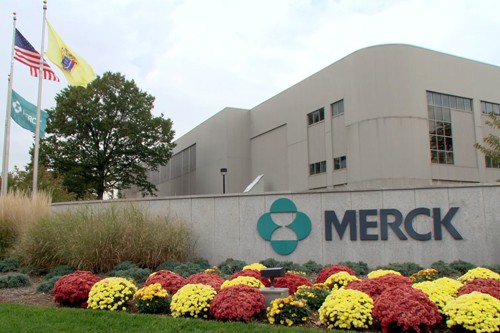
Merck & Co – known as MSD outside the US and Canada – has shared positive results from a late-stage trial of its anti-PD-1 therapy Keytruda (pembrolizumab) in certain bladder cancer patients.
The phase 3 AMBASSADOR trial has been evaluating Keytruda versus observation as an adjuvant treatment for patients with localised muscle-invasive urothelial carcinoma and locally advanced urothelial carcinoma.
At a pre-specified interim analysis, Keytruda demonstrated a statistically significant and clinically meaningful improvement in the dual primary endpoint of disease-free survival versus observation in these patients after surgery.
The safety profile of Keytruda was consistent with that observed in previously reported studies, Merck said, adding that the National Cancer Institute-sponsored study will continue to evaluate its second dual primary endpoint of overall survival.
More than 82,000 people in the US are expected to be diagnosed with bladder cancer this year, and approximately 7% of bladder cancer cases are locally advanced at diagnosis.
Muscle-invasive bladder cancer is a bladder cancer that has spread into the deep muscle of the bladder wall, while locally advanced urothelial cancer is a cancer that begins in the urothelial cells and has spread to nearby tissue or lymph nodes.
Despite surgery, up to 50% of patients with bladder cancer experience recurrence within 12 months, which Dr Marjorie Green, senior vice president and head of late-stage oncology, global clinical development at Merck Research Laboratories, said underscores “the need for new treatment options in the adjuvant setting”.
She continued: “These positive results highlight the potential of Keytruda to prevent recurrence after surgery for patients with localised muscle-invasive or locally advanced urothelial carcinoma.”
Keytruda works by increasing the ability of the body’s immune system to help detect and fight tumour cells.
The therapy already holds approvals to treat a wide variety of cancers, including specific cases of locally advanced or metastatic urothelial carcinoma and non-muscle-invasive bladder cancer.
There are also currently more than 1,600 trials studying Keytruda, including in combination with Merck and Moderna’s investigational skin cancer vaccine.
The partners announced at the end of July that the combination had entered late-stage development after being shown in a mid-stage study to cut the risk of recurrence or death of melanoma by 44% compared to Keytruda alone.




